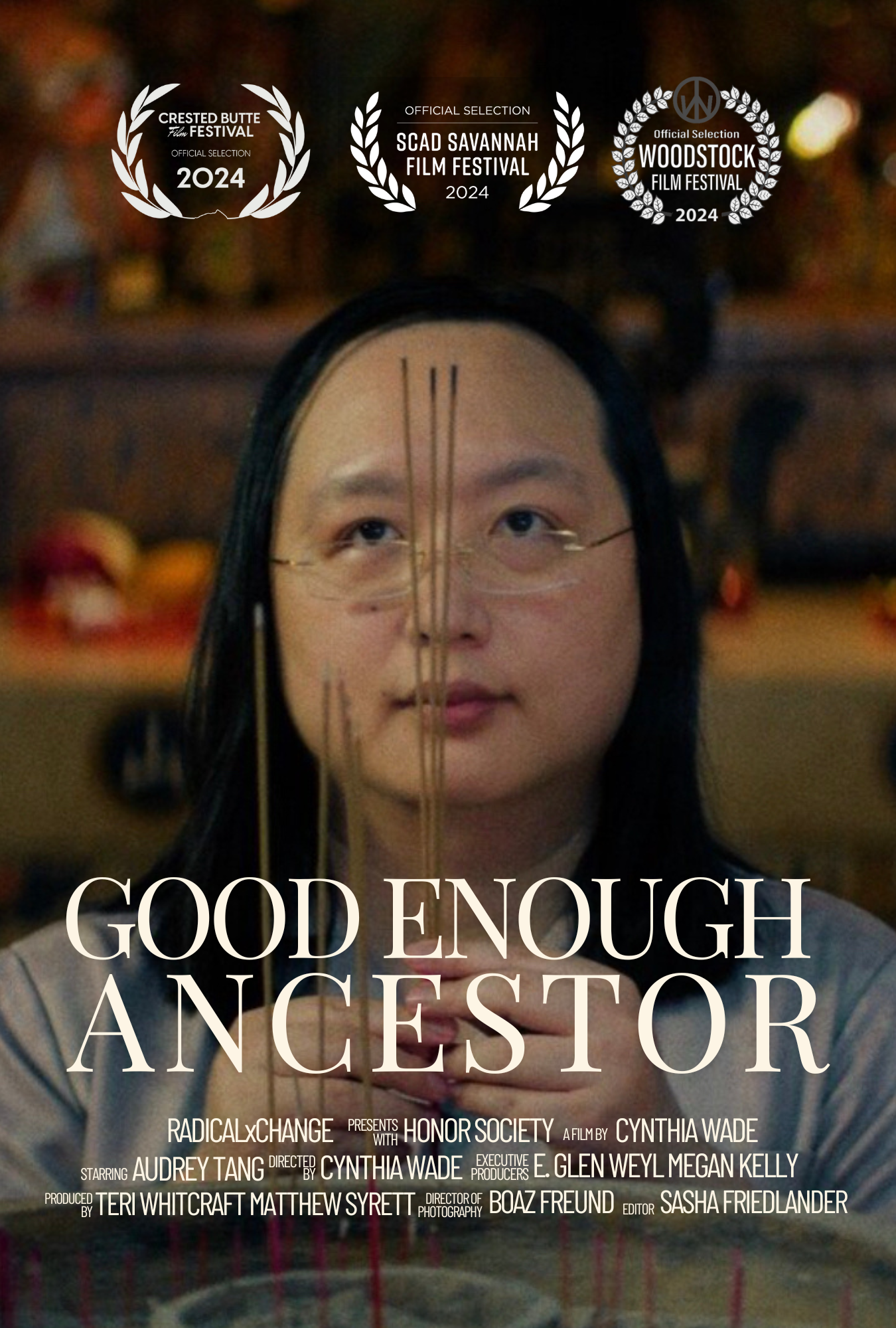Soft Determination Wins
Malik Lakoubay
April 1, 2025
What a moment together and a Pol.is conversation tells us about the future of democracy

From March 13 to March 20, RadicalxChange chapters around the world gathered in 9 cities across 3 continents in Barcelona, Berlin, Buenos Aires, Lisbon, London, New York City, Paris, San Francisco, and Zurich. They hosted screenings of Good Enough Ancestor, a short documentary telling the story of Audrey Tang, Taiwan’s first Digital Minister and the world’s first transgender minister. Overcoming bullying, a fatal heart condition, and gender dysphoria, Tang has emerged as a leading figure of nonviolent resistance to authoritarianism.
Following the screening of the film, attendees had the opportunity to connect with other chapters through an online Pol.is conversation where they could share their views on the film, Audrey’s story, and the future of democracy. This Pol.is conversation was a way to engage between different RadicalxChange communities around the world and participate in a deliberative discussion reflecting on the question: “What does Audrey’s story tell us about how we can reinvigorate democracy?”
Since the screenings, 72 attendees participated and 1,653 votes were cast, while 48 statements were submitted. You may find the full report here. Below, we present a quick summary of this rich online conversation. As other cities around the world join the screening calendar, we will keep this Pol.is page active and encourage anyone to (re)visit the comments and opinions expressed. Our goal is to grow this global conversation, share Audrey’s story and vision, and surface ideas and initiatives to re-energize democracy.
The short film’s message of strengthening democracy through composure and collaboration in the face of uncertainty moved audiences. “Soft determination wins” was one of the comments that resonated the most.
From this online conversation, a number of hopeful and visionary comments surfaced and pointed to a rejection of a bleak future:
-
First, participants rejected the fact that Taiwan’s experiment around open and participative democracy cannot be replicated.
-
There was also a common view that technology, when used in a collaborative and open way, is a very powerful tool to engage and make an impact for the common good, echoing Audrey’s vision and the main theme of her latest book (plurality.net). This comment resonated deeply with participants: “The future of democracy lies in empowering citizens to connect with each other.”
-
Participants also pointed to nature as an easily overlooked theme: “Nature is never named but always present as part of a whole.”
-
The majority rejected an opposition between technology and democracy, while sharing the ambitions for the younger generation to defend democracy: “Audrey’s story is inspiring for the whole young generation, no matter your background or personal story, you can contribute and engage.”
Pol.is allows for analysis and grouping of inputs, helping to sketch areas of consensus and avenues of collaboration. Across 70 total participants, 2 opinion groups emerged. These two groups tended to vote similarly on multiple statements and with distinct patterns to the other group. In a conversation that was not deeply divisive, contrasting comments emerged at the margin on ways to use Audrey and Taiwan’s experience more than 10 years after the Sunflower Movement. Areas of debate focused on the general applicability of the Taiwanese experience in spite of the consensus that it should at the very least serve as an inspiration. Voices emerged for “Each community (to) uniquely co-create means” to defend democracy.
Against the backdrop of rising authoritarianism and geopolitical tensions, Good Enough Ancestor is a timely reminder of the fragility of democracy and the responsibility to tend to it for future generations. This Pol.is conversation is an opportunity to insert ourselves and bring others into the conversation on the future of democracy and how to protect it.
A warm thank you to all organizers and participants. Don’t hesitate to join this conversation. By bringing your own perspective, personal story, and disagreements, we may build a more plural future.